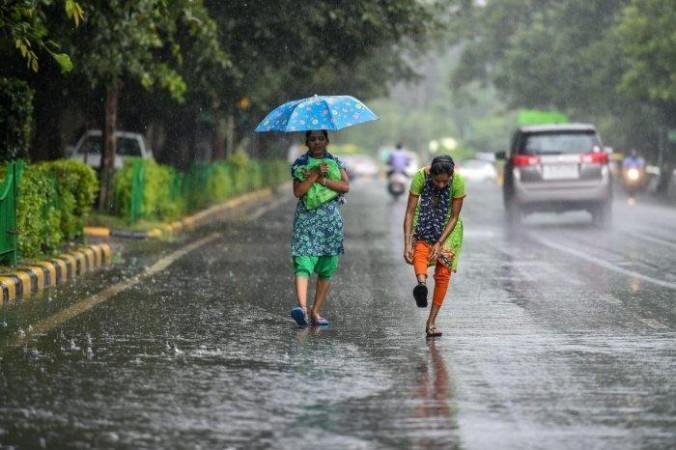Farmers of the rainfed areas of Union Territories (UTs) of Jammu and Kashmir and Ladakh are thrilled over the earlier arrival of the monsoon, but this development has made agricultural experts 'worried'. There is fear among experts that due to earlier arrival, the monsoon may not be long-lasting this year and would create a rain deficit in both the UTs.
"Early arrival of Monsoon is good for the rainfed areas, but we are worried about possible 'dry spell' between July and August", senior agricultural scientist and head of Krishi Vigyan Kendra, Samba, Dr. Vinod Gupta told International Business Times. He said that the prolonged monsoon season is a must to ensure the recharging of groundwater even in the irrigated areas, especially plains where farmers grow paddy and other crops.

Monsoon deficit may create a drought-like situation
Senior scientist of Sher-e-Kashmir University of Agricultural Sciences and Technology, Jammu Dr. Vivek M Arya is of the opinion that it is too early to predict monsoon. He is, however, worried in case there is a monsoon deficit, it will create a drought-like situation. "Early arrival of monsoon has a direct relationship with climate change", Dr. Arya told International Business Times.

Monsoon arrives in J&K, Ladakh 18 days early
The Meteorological Department announced on Monday that the monsoon season arrived in Jammu and Kashmir and Ladakh 17 to 18 days earlier than usual.
"The IMD has declared the arrival of monsoon over J&K and Ladakh on June 13 which is 17 to 18 days ahead of the normal onset," said Sonam Lotus, Director of the Met Department.
The Met Department has forecast scattered to fairly widespread light to moderate rain and thundershowers in Jammu and Kashmir in the next 24 hours. Srinagar recorded 15.6, Pahalgam 10.2, and Gulmarg 7.8 degrees Celsius as the minimum temperatures on Monday. Leh town had 12.5, Kargil 12.4, and Drass 8.0 as the minimum temperatures.
Jammu city had 25.1, Katra 22.2, Batote 16.6, Banihal 14.4, and Bhaderwah 15.5 as the minimum temperatures.
As per IMD, Southwest Monsoon has further advanced into entire Uttarakhand, Himachal Pradesh and Jammu & Kashmir, Ladakh, Gilgit-Baltistan & Muzaffarabad today, the 13th June 2021.
— Kashmir Weather (@Kashmir_Weather) June 13, 2021
Nearly 15 days earlier than the normal onset date. pic.twitter.com/4cFotbAUYT

















